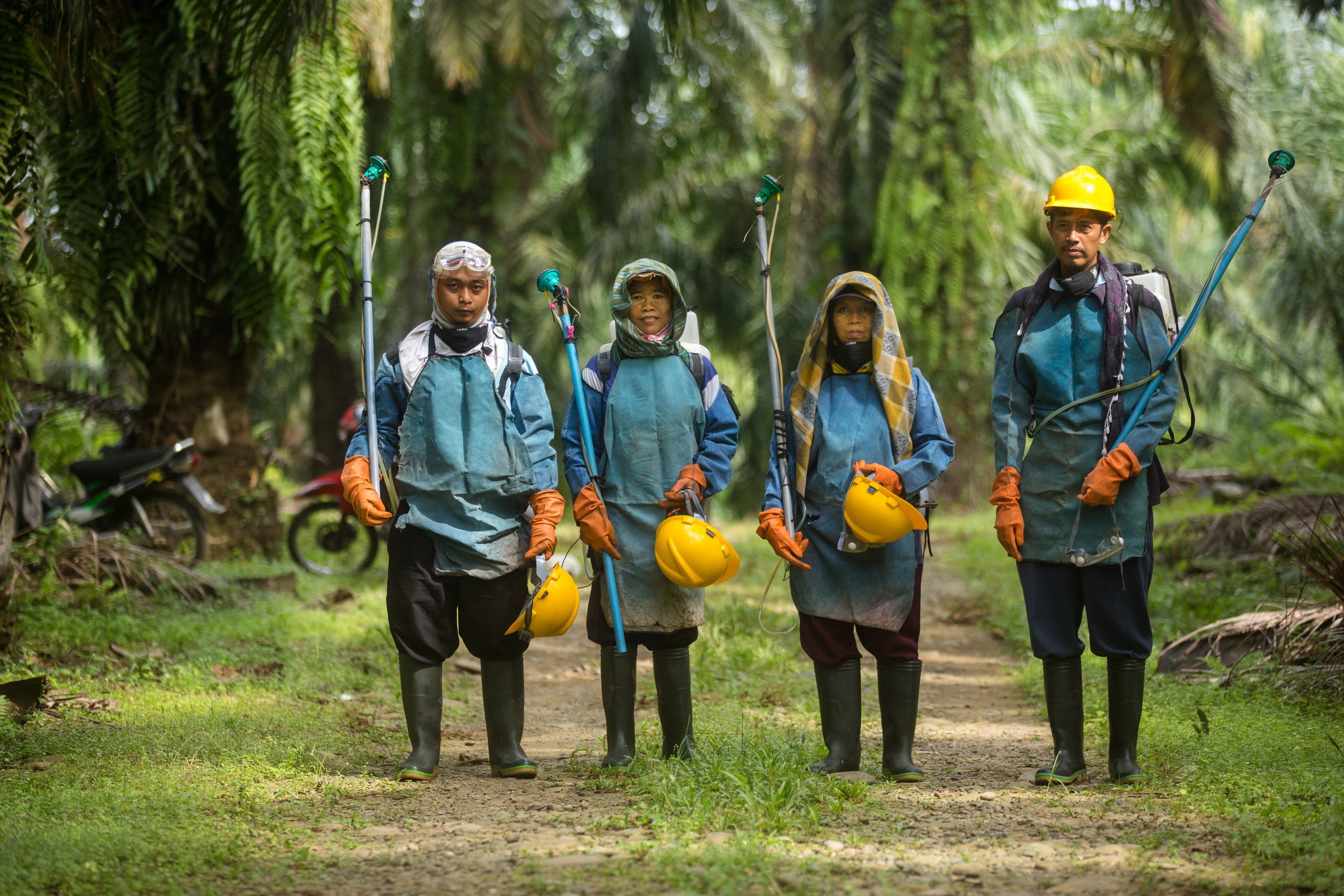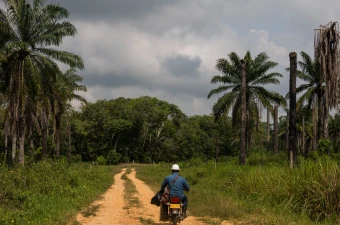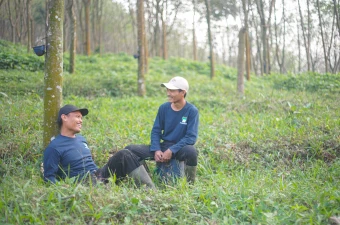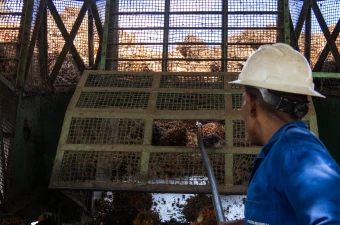Tackling the issue of IRBC compliance for palm oil plantations
in Indonesia
A project update
To address the most severe labour risks in the palm oil sector on West-Kalimantan Indonesia, the Dutch Banking Sector Agreement “Palm Oil Value Chain” working group started a multi-stakeholder project. The aim is to develop a collective labour agreement database for increased transparency regarding the labour rights situation in the palm oil industry.
A baseline research published during a webinar 2 december gives insight into working conditions on the plantations. The initial results were shared with the Dutch stakeholders.
Baseline reseach topics
- Palm oil plantation workers often have poor working conditions. But do conditions vary among the different palm oil plantations?
- The effect of social dialogue and trade union freedom on the sector
- The amount of women are using their right to maternity leave
- Some palm oil plantations are doing better than others, how can international palm oil traders and banks address these differences?
- The way in which Indonesian plantation workers can benefit from this Dutch initiative.

Initial results
The baseline research shows the initial resuls and gives insight into working conditions on the plantations, the legislation and regulations, and most importantly it shows the state of social dialogue between trade unions and employers.
This first survey has mapped 421 palm oil companies and plantations on West Kalimantan, who have 12 collective labour agreements (2,9% of all companies). The non-existence of collective agreements (73,8%) or the presence of only personnel regulations (23,3% of the companies) also provides insight into the arrangements and the compliance with labour laws, or their lack, in this sector. Having a regulation does not in itself guarantee compliance, because the authorities do not monitor compliance or quality.
Of the 421 companies, 27,55% of the companies are members of RSPO, the Round Table for Sustainable Palm Oil. This means that 72,45% of the companies are without certification. Some of these companies are members in both networks. The low number of membership also gives implications to the lack of organisation within companies, which influences the awareness on the need and lack of CBAs.
During the webinar last 2 December the project partners (the Dutch Banking Sector, Rabobank, FNV, and CNV) provided information about the significance and consequences for companies and other stakeholders. They clarified how due diligence by companies and banks can improve local labour rights and how the project partners in the Netherlands and Indonesia collectively tackle the CSR risks.
From the start of the project partners have been strengthening cooperation with large palm oil companies, the Roundtable on Sustainable Palm Oil, local trade unions, and the ILO Indonesia.
The baseline research shows the current state of Indonesian palm oil plantations in West Kalimantan and how we can improve working conditions throughout the palm oil value chains.
Publication date 06 12 2020


